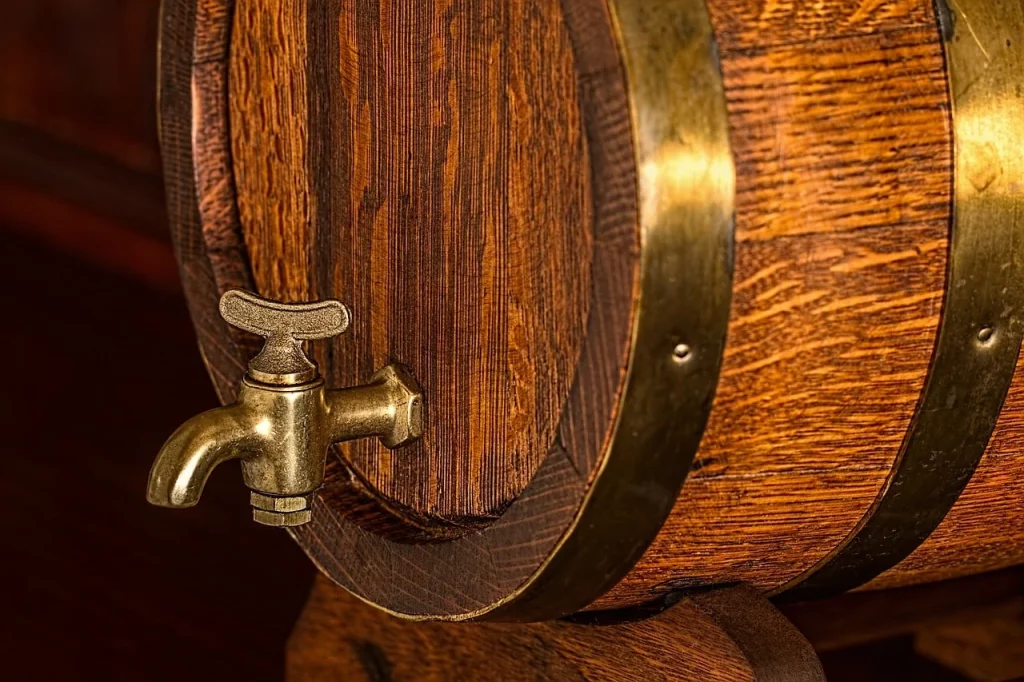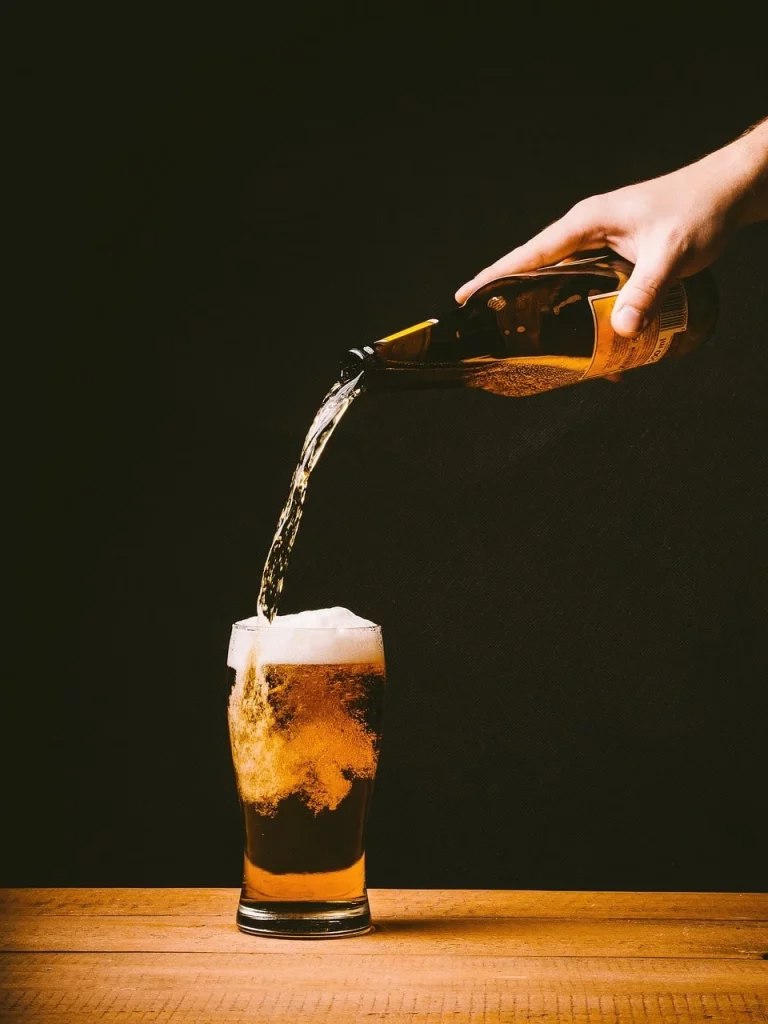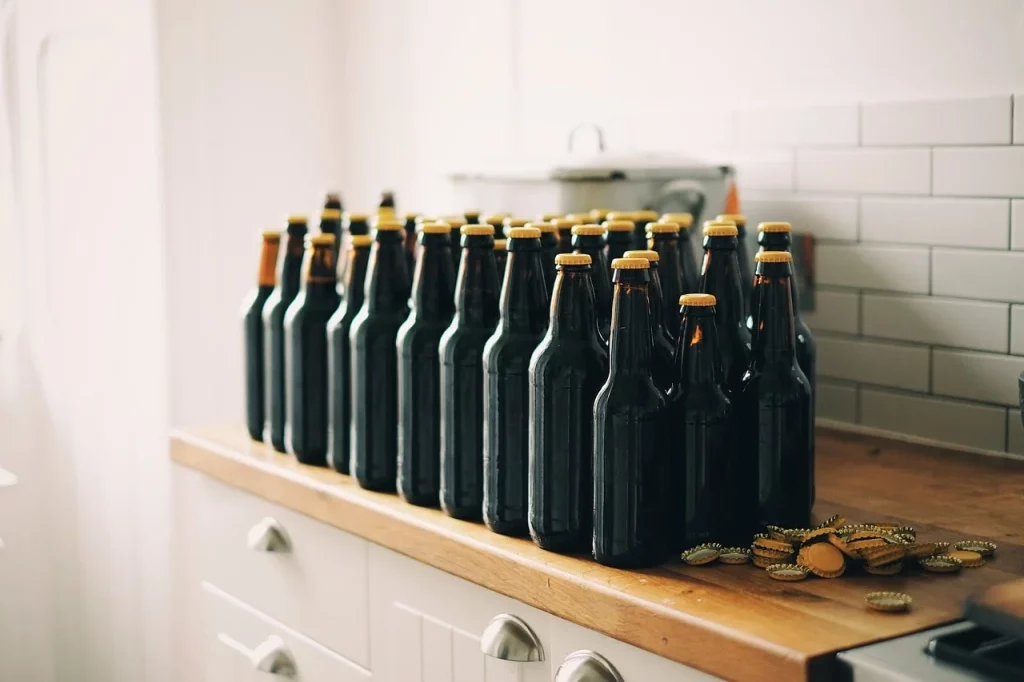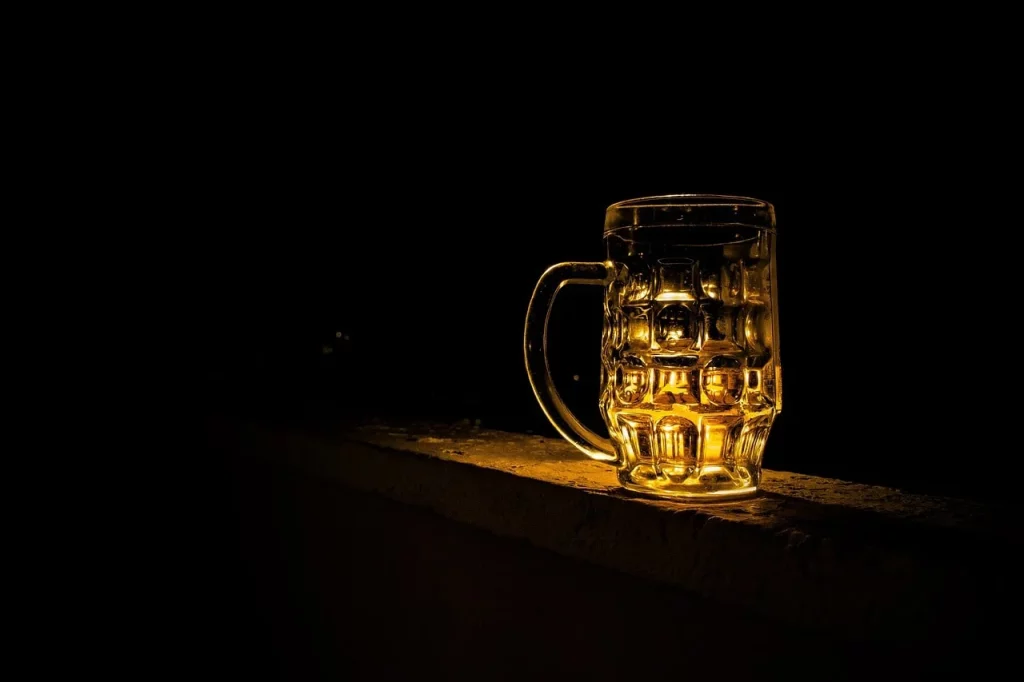Welcome to the world of beer, where every sip has a story and every bottle is a journey. Beer has been a silent witness to history, from the birth of democracy to the signing of treaties. It’s been there for the highs, the lows, and everything in between.
But beyond its role as a historical bystander, beer is a master of disguise. From light and refreshing to dark and complex, its versatility is unmatched. Have you ever paused to ponder why beer goes so well with sports or why it seems to taste better in the company of friends?
As we explore these intriguing beer facts, get ready to see this familiar drink in a whole new light. Will you find the hidden treasure in your next brew?
He was a wise man who invented beer.
Plato
Beer Facts
Dive into the world of beer with facts that will test your knowledge. Make sure to read carefully, as a quiz awaits at the article’s end to crown you a beer expert.
- The oldest known recipe for this beverage is over 4,000 years old, found on a Sumerian tablet.
- In the Middle Ages, monks would often receive their nutrition through liquid bread, considering it a divine gift.
- The strongest variety ever made had a staggering 67.5% alcohol by volume (ABV).
- At the 1963 World’s Fair, a beer company introduced a product that included a small amount of radioactive material to demonstrate quality control through radiation.
- The ancient Egyptians paid the workers who built the pyramids with beer, a daily ration of four to five liters.
- The fear of an empty glass has a specific name: Cenosillicaphobia.
- The White House has its own brewing facilities, producing honey ale using honey from the First Lady’s garden.
- In the 1980s, a beer was actually marketed using a nuclear reactor to age it faster.
- Belgium has a pipeline that runs two miles under its streets to transport beer from the brewery to the bottling plant.
- The first professional brewers were all women, known in ancient Mesopotamia as brewsters.
- In the 13th century, some people in Norway would baptize their children with beer.
- The ancient Babylonians were so serious about brewing that if anyone brewed a bad batch, they would drown them in it as a punishment.
- During Prohibition in the United States, “near beer” with an alcohol content of 0.5% was legal.

- The largest collection of beer cans is over 100,000 different cans, owned by a beer lover in the U.S.
- In the early 20th century, Pabst beer was prescribed by doctors to boost breastfeeding.
- There’s a brewery in Germany that’s been operating since 1040, making it the oldest in the world.
- One of the key ingredients in craft beers, hops, is in the same family as marijuana.
- In the Middle Ages, European cities had streets dedicated to the brewing and selling of beer, known as “brewer’s streets”.
- Oktoberfest in Munich originally started as a royal wedding celebration in 1810.
- The term “rule of thumb” originates from brewers who would dip their thumb into the mix to determine the right temperature for adding yeast.
- There’s a cloud of alcohol in outer space with enough alcohol to make four trillion-trillion drinks.
- A beer wave of 388,000 gallons flooded London in 1814 after a huge vat ruptured.
- Beer cans in Japan have Braille on them, so the blind can tell what they are buying.
- In ancient Mesopotamia, couples would drink honey beer, or mead, for a month after marrying, coining the term “honeymoon”.
- George Washington had his own brewhouse on the grounds of Mount Vernon.
- A beer spa in Iceland lets you bathe in young ale and live yeast, with taps nearby to drink mature beer.
- The world’s longest hangover lasted four weeks after a Scotsman consumed 60 pints of beer.
- Beer was not considered an alcoholic beverage in Russia until 2013.

- A “Zythologist” is an expert in the science of beer and brewing.
- In some parts of Africa, beer is made from bananas.
- The first recorded cargo theft in the U.S. was of a beer shipment from the Brewers Association in 1934.
- In 16th century England, pubs had a whistle baked into the rim or handle of ceramic cups so that customers could blow it to get service. This led to the phrase “wet your whistle”.
- At the start of the 20th century, there were over 1,500 breweries in the Czech lands, making it one of the most densely populated brewery regions in the world.
- The act of toasting originated in Ancient Greece as a gesture of hospitality to assure guests their wine wasn’t poisoned.
- NASA has developed a technique to turn urine into drinkable water, which could theoretically be used for brewing beer in space.
- A brewery in Denmark has produced a beer using barley fertilized with human urine collected from a music festival.
- The foam head on a pour of beer is considered by many cultures to be a sign of quality and freshness, not something to minimize.
- The first ever beer bottle was sold in England in 1850.

- Some monks in Belgium and Germany are known to brew beer as part of their monastic activities, a tradition dating back centuries.
- In 2015, a time capsule from the 19th century was opened in Scotland, revealing a well-preserved bottle of beer among its contents.
- The Czech Republic has the highest beer consumption per capita in the world.
- Before thermometers were invented, brewers would dip their thumb or finger into the mix to find the right temperature for adding yeast, leading to the phrase “rule of thumb”.
- There is a beer brewed from bananas in East Africa, known locally as “banana beer”.
- In Argentina, political parties have their own brands of beer.
- The International Space Station has its own microgravity brewery.
- In medieval Europe, beer was often served with breakfast.
- Beer bottles weren’t brown until the late 19th century. Before then, they were green or clear, which led to beer spoiling faster due to light exposure.
- Some beers are designed to be enjoyed at room temperature or even warm, especially certain strong ales and stouts.
- There are beer sommeliers, known as “Cicerones“, who are experts in pairing beer with food.
- In space, astronauts can’t burp because of the lack of gravity, which prevents the separation of liquid and gas in their stomachs. However, a special “space beer” has been developed to allow them to enjoy a brew without the burping.
Beer Myths

Now that we’ve covered all these fun facts about beer, we’re ready to take on the myths. Join us as we sift through the stories to find the truth behind some common myths.
- Beer is best served ice-cold
In fact, the optimal serving temperature varies by type. Lighter beers are often enjoyed at slightly cooler temperatures, while the complex flavors of heavier, darker beers are better appreciated when they’re served at slightly warmer temperatures. - Dark beers are always stronger in alcohol
Actually, the color is determined by the malt used, not its alcohol content. Darker beers can be just as light in alcohol as their lighter counterparts. The strength of a beer is influenced by the fermentation process, not by its color. - Beer before liquor, never been sicker; liquor before beer, you’re in the clear
This saying is not supported by scientific evidence. The severity of a hangover is influenced by overall alcohol consumption and dehydration, not by the order in which different types of alcohol are consumed. - Beer is not as sophisticated as wine
In reality, it offers a rich diversity of flavors, styles, and traditions, akin to wine. With the craft beer movement, brewers have been exploring and expanding the possibilities of beer, creating complex and nuanced brews that can rival the sophistication of wines. - Canned beer tastes worse than bottled
The taste is not inherently affected by whether it’s stored in a can or a bottle. Modern cans are lined to prevent metallic tastes, and many argue that cans actually preserve the flavor of beer better than bottles by blocking light and sealing more tightly.
No products found.
Beer Quotes

Let’s raise a glass and delve into some of the most delightful quotes about this beloved brew. Feel free to share yours in the comments so I can add them to the list as well.
Beer is proof that God loves us and wants us to be happy.
Benjamin Franklin
Often misattributed or paraphrased, this quote by Benjamin Franklin celebrates beer as a divine gift meant to bring joy to humanity.
You can’t be a real country unless you have a beer and an airline. It helps if you have some kind of a football team, or some nuclear weapons, but at the very least you need a beer.
Frank Zappa
Frank Zappa humorously comments on the cultural importance of beer, equating its presence with national identity and pride.
Beer, if drunk in moderation, softens the temper, cheers the spirit and promotes health.
Thomas Jefferson
Thomas Jefferson advocates for the moderate consumption of beer, citing its positive effects on temperament, spirit, and health.
Work is the curse of the drinking classes.
Oscar Wilde
Oscar Wilde’s witty observation flips the common saying on its head, suggesting that for those who enjoy their drink, work is merely an unwelcome interruption.
Beer makes you feel the way you ought to feel without beer.
Henry Lawson
Henry Lawson poetically describes beer’s effect on the human spirit, suggesting it brings out a sense of well-being that one should naturally have.
Beer FAQ

As we transition from the insightful quotes about beer, we approach our final segment before the quiz. Pay close attention to this FAQ section, as it will sharpen your knowledge and prepare you for the upcoming trivia.
- Why does beer make you pee?
Ah, the age-old question! Beer acts as a diuretic, which means it increases the amount of water your body expels through urine. This is because alcohol inhibits the release of a hormone that helps your body retain water. - Can beer freeze?
It usually freezes at around 28°F (-2°C), give or take, depending on its alcohol content. Higher alcohol beers freeze at slightly lower temperatures. Freezing can cause the beer to expand, potentially breaking the bottle or can, and it can also negatively affect the beer’s taste and carbonation levels. - Are beer cans recyclable?
Beer cans are typically made of aluminum, which is highly recyclable. Recycling aluminum cans saves a significant amount of energy and resources compared to producing new ones. Just make sure to rinse them out before tossing them in the recycling bin to avoid attracting pests and to make the recycling process smoother. - Can beer go bad?
Indeed, it can go bad or at least lose its prime flavor. Over time, beer can become stale, taste off, or develop an unwanted sour or cardboard-like flavor due to oxidation or exposure to light and high temperatures. Most have a “best by” date that gives you an idea of how long they’ll taste as intended. Storing beer in a cool, dark place can help it last longer. - What beer is gluten-free?
For those sensitive to gluten, there are plenty of beer options out there! These are made using gluten-free grains like sorghum, rice, or millet instead of the traditional barley or wheat. There are also gluten-reduced beers that are brewed in a way that breaks down the gluten to below recognizable levels for those with minor sensitivities. Brands like Glutenberg and Green’s are popular choices.
No products found.
Beer Trivia

Welcome to our ultimate beer quiz, where the only thing frothier than the questions is the penalty for scoring zero – you’ll be crowned the official ‘Designated Sipper’ for the night, responsible for fetching drinks without tasting any!
Conclusion
Finally, as we end our journey into the world of beer, it’s clear that this drink does more than just quench our thirst. It inspires, it unites, and it delights. With every sip, we’re part of a tradition that dates back thousands of years yet is as fresh and exciting as ever.
So, here’s to the brewers, the drinkers, and the lovers of beer everywhere. Keep exploring, tasting, and enjoying. Till next time, stay curious. Cheers.


